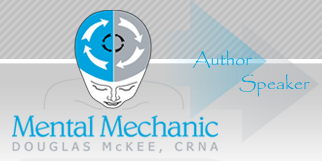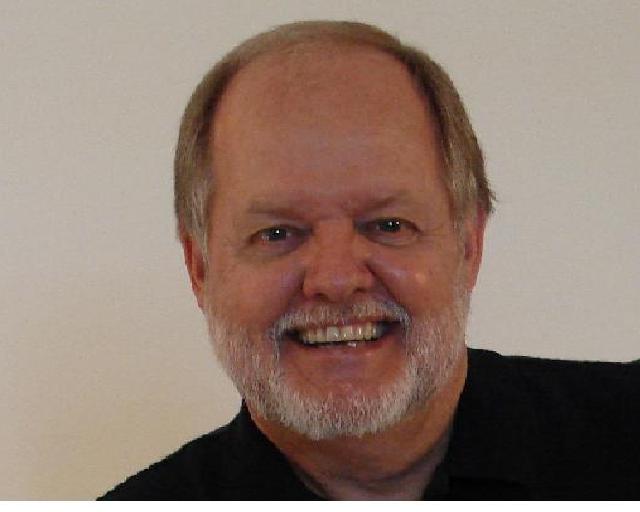|
|
| www.douglasmckee.com December 2, 2008 |
| A
MENTAL HEALTHCARE PARADIGM FOR THE 21st CENTURY |
A major reason our healthcare systems are failing is that the system of mental health science supporting healthcare has failed to grasp even simple concepts which could rapidly lead to a much more mentally balanced and healthy population. Mankind needs a totally new mental health paradigm: one using current science, not one based on 100 year old theories. Psychiatry has basically abandoned thinking therapy for the pursuit of chemical treatments. Fifteen of the top selling twenty drugs in the USA last year, 2006, were for depression, anxiety, or pain. This is a massive problem with only one eventual outcome: a population with a majority dependent on drugs for their sense of well being rather than their own personal resources and self-reliance. The statistics show we may have already reached that point: 70 million Americans have hypertension, 46 million suffer from depression, 43 million from anxiety, 20 million can't sleep, 16 million have road rage, and almost 3 million are incarcerated in prisons and jails. The World Health Organization predicts, by 2020, depression will be the second leading cause of sickness and death worldwide in all age groups. Depression already is the second highest cause of sickness and death in the 15-44 years age group. Currently, the cost of treating a patient with depression varies between $2500 and $4500. When approximately half the world's population lives on less than two dollars a day, what chance have they for any kind of treatment at all? The pendulum has swung so far that even obvious relationships between thinking patterns and conditions of physical and mental ill health are being ignored by all but a few in the race for the next best selling drug. How did we get so far off track? What has brought us to this point? Simply put, Freud was wrong, and his erroneous conclusion pointed the entire profession of mental health in the wrong direction. Freud studied patients who, for the most part, were "unsuccessful." They were unable to get through a day most of us would consider unremarkable. His focus was trying to understand what was wrong with the patient. The focus of the profession to this day is still diagnosing what is wrong. The system is based on categorizing behavior problems. The failure of psychiatry is that it still lacks any real ability to help patients repair the damage by teaching them better ways to cope or teaching them better ways to handle their emotions. The need for a new Mental Health Paradigm is obvious if we let the exploding number of people in emotional distress, historically referred to as mentally ill, speak for the need. Any aspiring scientist knows that to keep repeating what doesn't work is the least likely way to discover what does work. It simply is not an avenue to discover a workable solution to a problem. Insanity is defined, tongue in cheek, as "doing the same thing over and over expecting different results." Studying results does not have an effect on the cause of an event. The difference between mentally healthy people and those who are not is not that the healthy ones don't have "crazy" thoughts like unhealthy folks, because we all do. The healthy folks, however, process their thoughts differently. They are able to organize their thoughts, keep their thoughts and emotions in perspective, and use their thoughts to set goals and accomplish tasks. Every time we have done, do, or will do, something successfully, even the littlest things, it is because we processed the information necessary to accomplish it correctly. The new mental health paradigm will focus on educating youngsters and adults HOW to think clearly so most of the pathologic thinking that leads to mental distress and loss of control is avoided. It is simple to teach, reproducible, inexpensive, and could be very easy to implement. "An ounce of prevention is worth a pound of cure," is true. School children are only taught "Rules and Tools," if you will, for handling two kinds of data, Arithmetic and Grammar. There is no instruction to help them appropriately handle emotions, needs, wants, values, self-esteem, relationships, parenting or work. And it is this inability that leads to the deplorable result that 50% of all mental illness is expressed by age 14, and 75% by age 21. "Small child" thinking cannot be successfully applied to handling "adult" situations and problems. Teaching children and adults correct data handling techniques will be the primary focus. They will be taught, more correctly, to see themselves as "the thinker," rather than their data. Thinkers use thoughts, just as Mechanics use tools. Humans need to be taught that thoughts are tools, options, and metaphors, not ones identity; that emotions are memories and adjectives, not absolute commands requiring action. What we choose to think about, and that choice is up to us as individuals, determines the biochemical makeup in our bodies for better or worse. New scientific discoveries demonstrate numerous processes within our brains that automate our thought processes to the point we don't even realize how automatic our thinking is. One of the mechanisms in our brain responsible for this is called "Long Term Potentiation." This process quickly turns a learning experience into a habit. A great example of this is driving an automobile. Almost none of us need to actively participate mentally in driving to and from work, and those who need to should probably take a taxi. The same process automates our emotional thinking, as demonstrated in "mental illnesses" such as depression and anxiety. Thinking the same kind of thoughts over and over again or focusing on a specific emotional event fairly quickly changes the biochemistry of the brain so the new emotional biochemical state becomes a habit and soon the habitual norm. The acronym "HEAT," stands for Habitual Emotional Automatic Thinking. These are the thinking processes that get us in trouble and keep us caught in emotional, unproductive thinking habits. They are summed up in the following table. Our "HEAT" habits are to, • react
to what's going on around me
"Therapy" then becomes teaching an individual valid, logical, and usable alternative thought processes that will yield demonstrably more functional results. Such instruction must include at least three vital elements: 1. There
must be an easy to understand description of human thought processes.
Glossary from Mental Mechanics: A Repair Manual Knowledge: Our personal mental database (collection) of experiences and emotions Emotions: The physical sensations generated when we think about our personal experiences. The biochemical part of our memories, or how we felt during an experience. Needs: Food, shelter, and nurturing (love) Wants: Everything other than needs Values: Our actions are our values made visible Self Esteem: The verdict when we judge our own actions Love: What we actually are outside our database Relationship: The framework within which two or more people or entities agree to reach a goal or goals Parenting: Applying the above so our children have an example from which to learn, and teaching them how to think clearly. Work: How we show ourselves and the world we are self sufficient. Stress: An emotion we have when threatened or we aren't sure what to do next. Once we start applying the "COOL" techniques, we can validly apply one of the following four options to situations from our past that will decrease, or eliminate, the emotional and biochemical manifestation of the old thought-habit. "ONE PAGE THERAPY MANUAL" from Mental Mechanics: A Repair Manual Releasing many of the negative hooks from the past can be accomplished by following some simple steps in this short self-therapy course. One of the following descriptions is accurate for each of the situations from our past we have not successfully resolved. 1) I didn't know how to handle that situation then but I do now. If it ever happens again I will handle it this new way. It may be helpful to visualize yourself handling the situation correctly. 2) I didn't realize that the problem was not even mine. All you have to do to become part of the problem is attempt to understand the other person's problem. Remember that your understanding comes from your own data bank. 3) I did not know that not reacting was an option. I can now simply choose not to react. 4) I now understand what it means to be response-able. Choosing to live my life based on "Where do I want go from here", instead of "where have I been", is the real expression of my ability to control my life." Good mental health is the result of the ability to think clearly. This new paradigm will teach people how to think in ways that will prevent, or limit, the dysfunctional thinking patterns that lead to loss of mental control and its attendant emotional distress. This in no way implies mind control but teaches mental self discipline. Instead of restricting results to our habitual reactions, thinking clearly actually allows us the opportunity to find more possible and creative solutions to situations |
|
Copyright © 2008 |
| Douglas
McKee.com Subscribe to my email Newsletter to keep receiving articles
such as these. |

